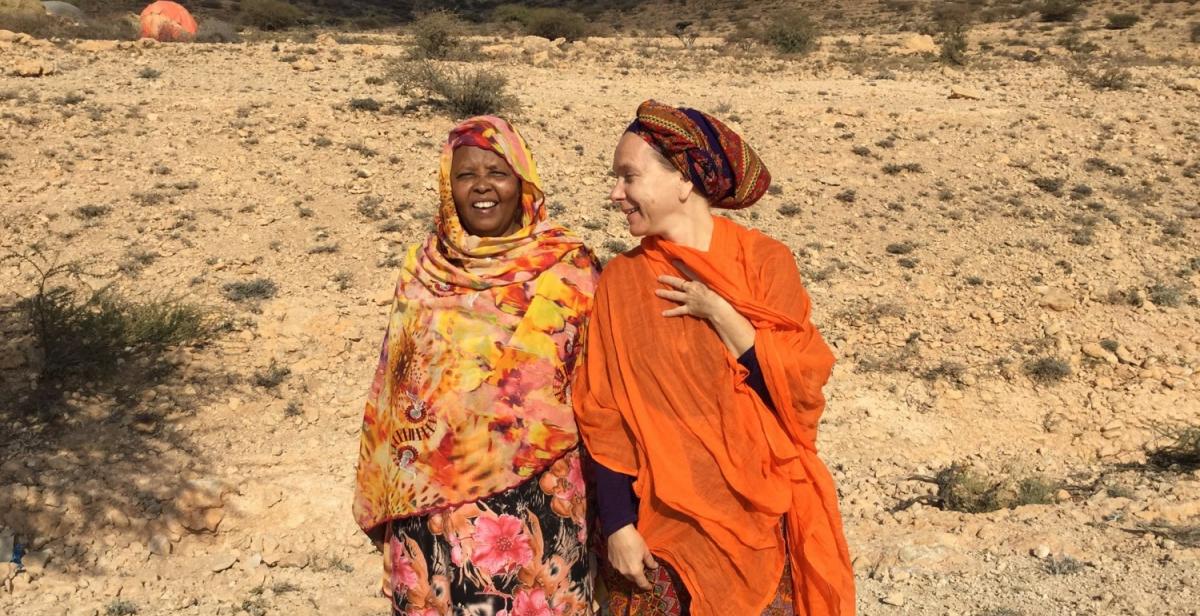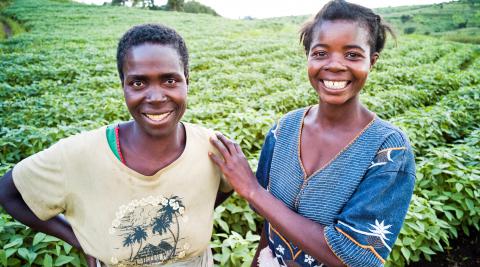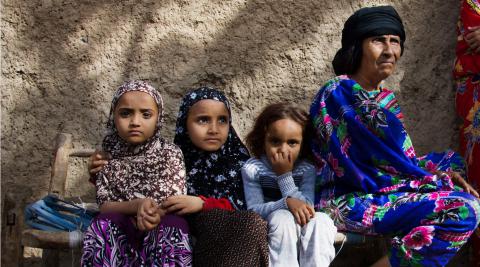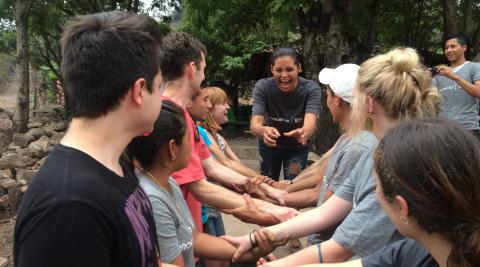Only the sky is the limit - Reflections on research opportunities and limitations, Part 1.
Malou Schueller is the Co-Investigator in the research on ‘Political Settlement in Somaliland – A Gendered Perspective’ and works as Governance Policy and Advocacy Officer for Progressio, that has been working in Somaliland since 1995. In this blog ‘Only the sky is the limit’ she shares her recent experience of the research team’s visit to conduct interviews to a remote area in Somaliland. Read part II of Malou's blog here.
Somaliland remains an internationally unrecognised state. Since it declared itself unilaterally independent of Somalia in 1991, it has been making remarkable strides towards democracy, providing peace, stability and democracy in a region where all are scarce. However, as Malou explains, there is still a vast amount of work to be done when it comes to inclusive governance and real democracy that recognises and involves women as equals not only at the ballot box, but also in political decision-making.
This is our second visit to Somaliland. In July/August 2015 we spent five weeks in Hargeysa recruiting a local research team of 5 excellent and long-term committed gender activists and agreed on research questions and a methodology. Since then, the local team have conducted 60 interviews with groups of ordinary women and men, individuals and key informants all over the country. Nearly all have been transcribed into Somali and English.
During this visit we want to take stock and plan for the next six months. See where gaps remain in the data collected in relation to the research objectives and experience some of the practical challenges of conducting interviews on a complex issue such as gender in this context. So we head East with three of our local researchers to Laas Caanood, the capital city of the Sool region, 7 hours drive and 540 km Southeast of Hargeysa.
The two Toyota Land cruisers carrying the research team are followed by a separate 4:4, carrying two armed officers of the Special Protection Unit (SPU), a subsection of the Somaliland police force. This is a national security requirement: all foreigners have to be accompanied by SPUs when they travel outside of Hargeysa. If they don't, they are not allowed to pass police checkpoints - and there are plenty of these on the road. The reason: 4 foreign aid workers and teachers were killed in targeted attacks in 2003/04.
There are brightly painted houses with women in bright scarves standing outside, or sitting under thatch-roof shelters with vegetable scales in front of them. This is a nomad culture, though now vey urbanised as many have moved to cities like Hargeysa since the war ended in 1997. As we drive further away from Hargeysa there is the odd girl and woman to be seen without the long scarf. Some only wear head-ties. I would have much rather come to this Somaliland, where women didn't have to cover most of their skin as they do now in the cities. Some even hide their faces; only the eyes remain to be seen. It didn't used to be this way, I am told.
This increasing conservatism in Islam as practiced, is a result of many factors: backlash against Siad Barres secular dictatorship which tried (at least in theory) to bring women into the public sphere, but did so by marginalising religious leaders and even killing some who were opposed to its secular policies. It is also the result of the increasing influence of Wahabism, Saudi Arabia's conservative version of Islam all over the region, backed by funds for Koranic schools which spread this form of Islam from an early age. And it's a result of the war: as the state collapsed, people found structure and security in 'traditional' cultural ways, and both conservative religious practices and clan structures resurfaced strongly.
As we head further to the East, our vehicles are often the only ones on the road.
The road is paved so we are able to travel relatively fast, past numerous camel, goat and sheep herds immobile like paintings, feeding on acacia trees and other scrubs. Dried up riverbeds cut across the savannah, not a drop of water in sight. Endless and infinite flatness. In this semi-arid sandy plain that stretches as far as the eye can see towards the horizon, only the sky is the limit.
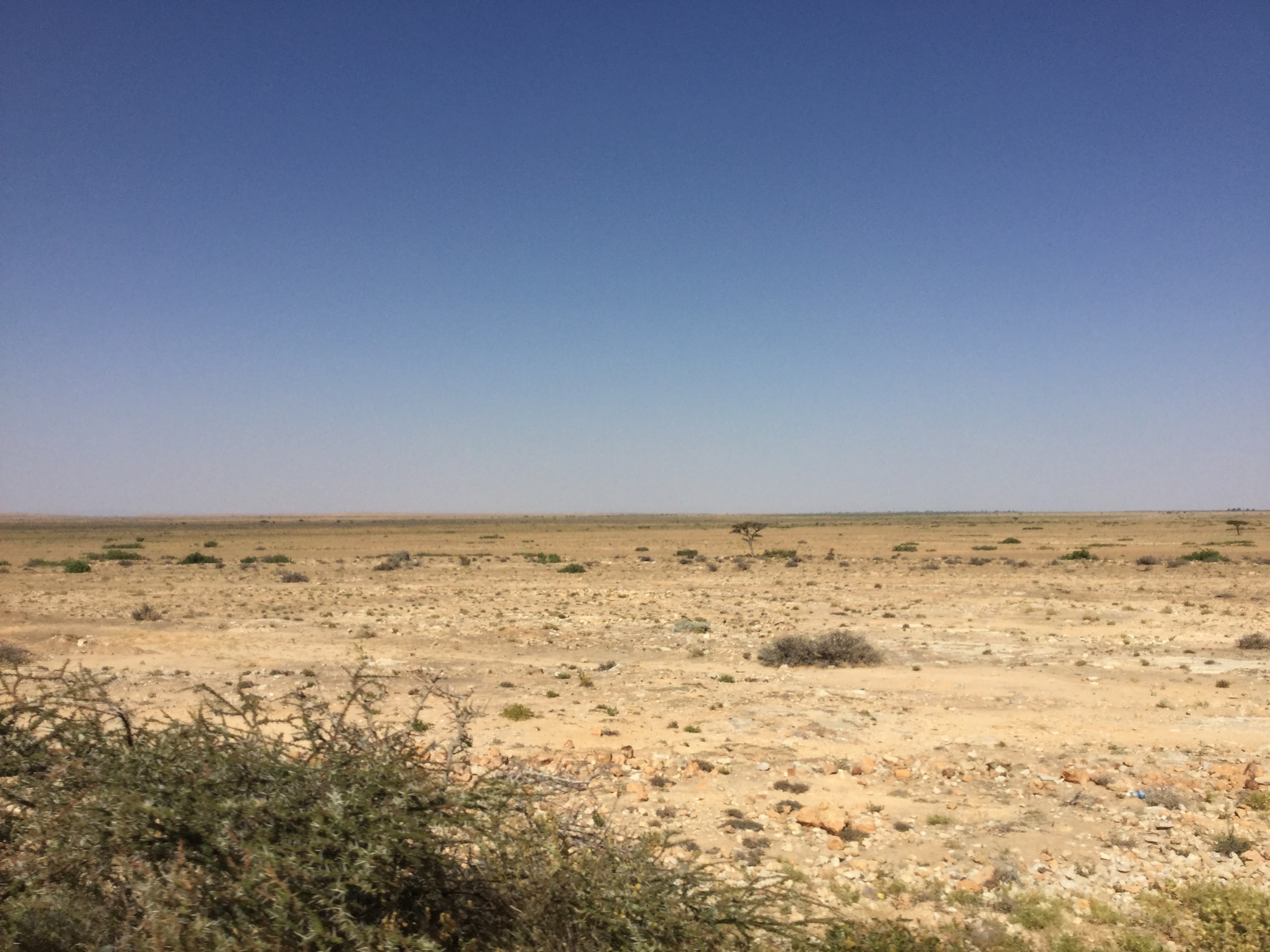
Field research, on the other hand, does have limitations, especially if you are foreign. This may be partly due to security considerations: With Al Shabaab south of the border in Somalia, we may be drawing too much attention to ourselves if we arrive in a remote rural village to ask people questions and record what they say. The main reason, however, is a certain discomfort expressed by our local research team that foreigners raise certain (development) expectations when visiting poor rural communities that are unlikely to be fulfilled.
There goes our idea of spontaneously talking to women and men we may encounter off the main road who have not been organised by an NGO beforehand and may therefore express slightly different, perhaps more conservative views. We resign ourselves to talking to those who have been organised to meet us in the small town of Las Caanood.
Written by Malou Schueller Governance Policy and Advocacy Officer
January 2016


